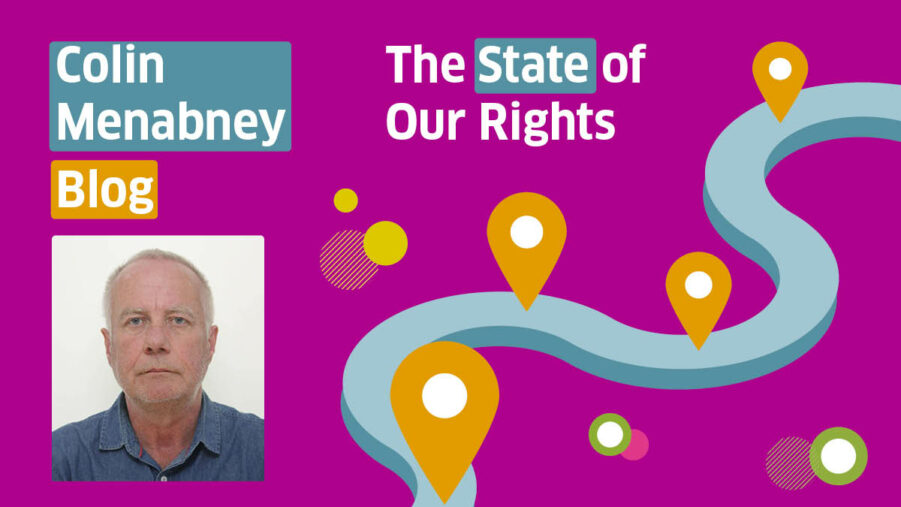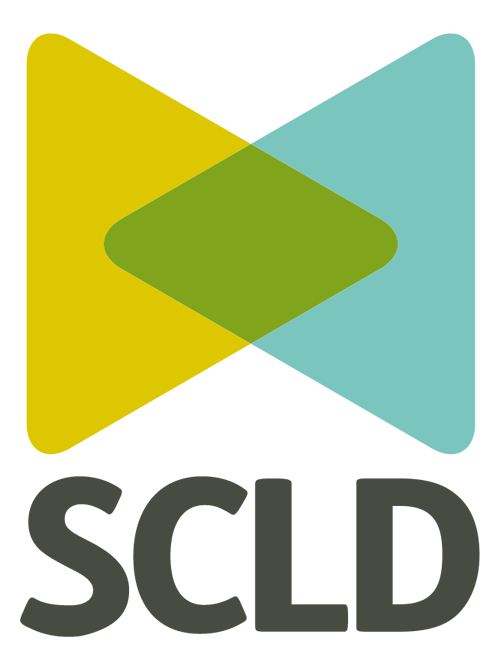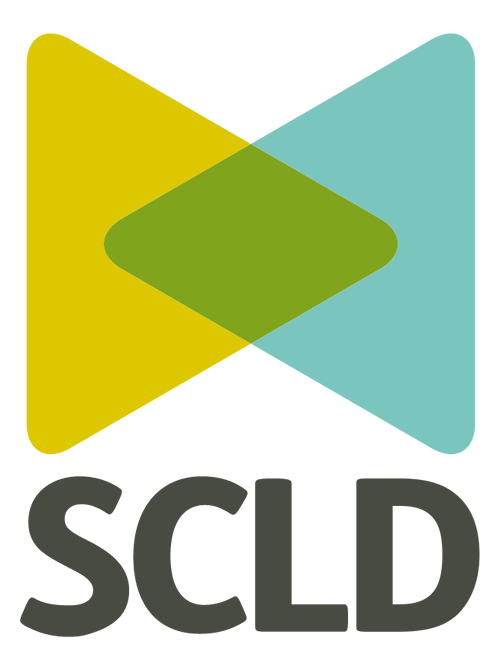
The State of Our Rights: A once in a generation opportunity
SCLD has invited a range of stakeholders and partners to share their thoughts on our recent state-of-the-nation report on the human rights of people with learning disabilities, The State of Our Rights. We will be sharing these meditations in a blog series over the coming weeks. Next up is Colin Menabney, Chief Executive at ENABLE Glasgow, with his thoughts on why the human rights landscape in Scotland is ripe for “a once in a generation” opportunity to enshrine the rights of people with learning disabilities…
“I’m Colin Menabney, and I’m Chief Executive at ENABLE Glasgow. We are a membership organisation which also develops and provides services alongside people with learning disability and those who care about them. We’ve been doing this for more than 60 years, and I’ve been working in the learning disability sector for almost half of that time.
Over those years, so much has improved – back then, there were policies and practices in place that would thankfully be unheard of now. Most of this change was brought about through hard-fought campaigns and the vital contribution of some people in positions of power who genuinely cared about the rights of the people we support.
However, as The State of Our Rights report points out, there are still many areas in which not enough has changed. Worse than that, we seem to be going backwards in some respects. When people are denied the support they need because their situation isn’t deemed ‘critical’, they need early support to stop their situation from reaching this level. People with learning disabilities should be able to expect their health outcomes and life expectancy to be the same as everyone else. They should be able to expect the same service level as before the Covid 19 pandemic. They shouldn’t be required to pay increasing care charges for their support – charges that often push them further into financial hardship and, in many cases, poverty. Once again, all too often, the people most in need of support are least likely to get it.
The real test of a commitment to the human rights of people with learning disability is how they are treated when times are difficult.
The real test of a commitment to the human rights of people with learning disability is how they are treated when times are difficult. Everyone is aware of the challenges facing social care at present. We need to make sure that the people we care about don’t go to the back of the queue in the struggle to get good support. The State of Our Rights report is an important step in this task.
Over the years, organisations such as SCLD, People First, Enable, Values Into Action Scotland and many others have supported many people to become highly effective and articulate self-advocates, and their involvement in work such as the production of The State of Our Rights makes the report all the more powerful. We also need to remember the thousands of other people with learning disability (and those who care for them) who can’t or won’t speak up for themselves. We all need to continue giving them a voice.
We also need to remember the thousands of other people with learning disability (and those who care for them) who can’t or won’t speak up for themselves. We all need to continue giving them a voice.
The Scottish Government is clearly committed to providing a legal framework for human rights in Scotland. Over recent months, it has been frequently pointed out that the creation of the Human Rights Bill gives us a perhaps once-in-a-generation chance to make sure that the particular human rights of people with learning disabilities are included in any legislation that results. Also, we need to ensure that this legal commitment to human rights is reflected in other legislation that affects people with learning disability and, just as importantly, that it underpins front-line policy and practice in years to come.”
Colin Menabney
Chief Executive, ENABLE Glasgow


